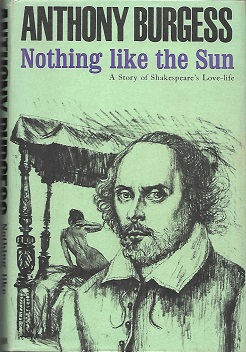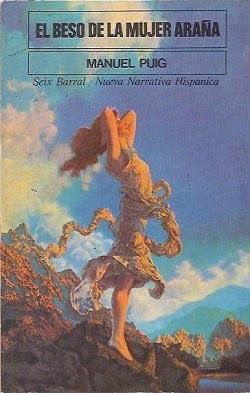Related Research Articles

Alejo Carpentier y Valmont was a Cuban novelist, essayist, and musicologist who greatly influenced Latin American literature during its famous "boom" period. Born in Lausanne, Switzerland, of French and Russian parentage, Carpentier grew up in Havana, Cuba, and despite his European birthplace, he strongly identified as Cuban throughout his life. He traveled extensively, particularly in France, and to South America and Mexico, where he met prominent members of the Latin American cultural and artistic community. Carpentier took a keen interest in Latin American politics and often aligned himself with revolutionary movements, such as Fidel Castro's Communist Revolution in Cuba in the mid-20th century. Carpentier was jailed and exiled for his leftist political philosophies.
Reinaldo Arenas was a Cuban poet, novelist, and playwright known as a vocal critic of Fidel Castro, the Cuban Revolution, and the Cuban government. His memoir of the Cuban dissident movement and of being a political prisoner, Before Night Falls, was dictated after his escape to the United States during the 1980 Mariel boatlift and published posthumously, after Arenas, who was dying of AIDS, committed suicide with an overdose of pills.

José María Andrés Fernando Lezama Lima was a Cuban writer, poet and essayist. He is considered one of the most influential figures in Cuban and Latin American literature. His novel Paradiso is one of the most important works in Spanish and one of the best novels of the 20th Century according to the Spanish newspaper El Mundo.

Nothing Like the Sun is a fictional biography of William Shakespeare by Anthony Burgess first published in 1964. It tells the story of Shakespeare's life with a mixture of fact and fiction, the latter including an affair with a black prostitute named Fatimah, who inspires the Dark Lady of the Sonnets. The title refers to the first line of Sonnet 130, "My mistress' eyes are nothing like the sun", in which Shakespeare describes his love for a dark-haired woman.
Published in 1982, Palace of the White Skunks is the second book of Cuban author Reinaldo Arenas' Pentagonia book series.

Lesbian, gay, bisexual, transgender (LGBT) rights in Cuba significantly advanced in the 21st century. Following the 2022 Cuban Family Code referendum, there is legal recognition of the right to marriage, unions between people of the same sex, same-sex adoption and non-commercial surrogacy as part of one of the most progressive Family Codes in Latin America. Until the 1990s, the LGBT community was marginalized on the basis of heteronormativity, traditional gender roles, and strict criteria for moralism. The Cuban revolution eradicated profit incentives and the superficial yet crucial tolerance of LGBT persons by the strongly homophobic Cuban society quickly evaporated. Therefore, those who did not fit the mold of the societal construct were deemed as either outcasts or as bourgeoisie. It was not until recently that the attitudes and acceptance towards LGBT people changed to be more tolerant.
Virgilio Piñera Llera was a Cuban author, playwright, poet, short story writer, essayist and translator. His most notorious works are the poem La isla en peso (1943), the collection of short stories Cuentos Fríos (1956), the novel La carne de René (1952) and the play Electra Garrigó (1959). He is also known for his role in the translation into Spanish of the novel Ferdydurke, by Polish writer Witold Gombrowicz.
Latin American literature consists of the oral and written literature of Latin America in several languages, particularly in Spanish, Portuguese, and the indigenous languages of the Americas. It rose to particular prominence globally during the second half of the 20th century, largely due to the international success of the style known as magical realism. As such, the region's literature is often associated solely with this style, with the 20th century literary movement known as Latin American Boom, and with its most famous exponent, Gabriel García Márquez. Latin American literature has a rich and complex tradition of literary production that dates back many centuries.

Severo Sarduy was a Cuban poet, author, playwright, and critic of Cuban literature and art. Some of his works deal explicitly with male homosexuality and transvestism.

Cuban literature is the literature written in Cuba or outside the island by Cubans in Spanish language. It began to find its voice in the early 19th century. The major works published in Cuba during that time were of an abolitionist character. Notable writers of this genre include Gertrudis Gomez de Avellaneda and Cirilo Villaverde. Following the abolition of slavery in 1886, the focus of Cuban literature shifted. Dominant themes of independence and freedom were exemplified by José Martí, who led the modernista movement in Latin American literature. Writers such as the poet Nicolás Guillén focused on literature as social protest. Others, including Dulce María Loynaz, José Lezama Lima and Alejo Carpentier, dealt with more personal or universal issues. And a few more, such as Reinaldo Arenas and Guillermo Cabrera Infante, earned international recognition in the postrevolutionary era.

Guy Hocquenghem was a French writer, philosopher, and queer theorist.

Kiss of the Spider Woman is a 1976 novel by Argentine writer Manuel Puig. It depicts the daily conversations between two cellmates in an Argentine prison, Molina and Valentín, and the intimate bond they form in the process. It is generally considered Puig's most successful work.
Andrew Hurley is primarily known as an English translator of Spanish literature, having translated a variety of authors, most notably the Argentine writer Jorge Luis Borges. He has published over 30 book-length translations.

Monsieur, or The Prince of Darkness (1974), is the first volume in Lawrence Durrell's The Avignon Quintet. Published from 1974 to 1985, this sequence of five interrelated novels explore the lives of a group of Europeans before, during, and after World War II. Durrell uses many of the experimental techniques of metafiction that he had integrated into his Alexandria Quartet, published 1957 to 1960. He described the later quintet as a quincunx.
Guillermo Rosales (1946–1993) was a Cuban novelist. A double exile, writing in reaction both to Cuba's totalitarian regime and to the indifference of Cuban-American exiles bent on achieving the American Dream, Rosales created some of the best Cuban literature of the second half of the twentieth century, garnering comparisons to Carlos Montenegro and Reinaldo Arenas.

American literature written in Spanish in the United States dates back as 1610 when the Spanish explorer Gaspar Pérez de Villagrá published his epic poem Historia de Nuevo México. He was an early chronicler of the conquest of the Americas and a forerunner of Spanish-language literature in the United States given his focus on the American landscape and the customs of the people. However, it was not until the late 20th century that Spanish language literature written by Americans was regularly published in the United States.

Gabriel José de la Concordia García Márquez was a Colombian novelist, short-story writer, screenwriter, and journalist, known affectionately as Gabo or Gabito throughout Latin America. Considered one of the most significant authors of the 20th century, particularly in the Spanish language, he was awarded the 1972 Neustadt International Prize for Literature and the 1982 Nobel Prize in Literature. He pursued a self-directed education that resulted in leaving law school for a career in journalism. From early on he showed no inhibitions in his criticism of Colombian and foreign politics. In 1958, he married Mercedes Barcha Pardo; they had two sons, Rodrigo and Gonzalo.
Roberto Valero was a Cuban poet, novelist, and educator.

Enrico Mario Santí is a Cuban-American writer, poet, and scholar of Spanish American Literature known for his critical essays and annotated editions of Latin American classics, including works by Octavio Paz, Pablo Neruda, and Guillermo Cabrera Infante. A frequent political commentator and art critic, he is also a sculptor and voice actor. As a child, Santí emigrated from Cuba to the United States, where he has had an extensive career as a professor in several universities. Currently, he is research professor at Claremont Graduate University, in Claremont, California.
The Clapton Press is an independent publisher based in London E5, established in 2018.
References
- Arenas, Reinaldo, Cantando en el pozo (1982) English translation Singing from the Well (1987) ISBN 0-14-009444-X
- Arenas, Reinaldo, El palacio de las blanquisimas mofetas (1982) English translation The Palace of the White Skunks (1990) ISBN 0-14-009792-9
- Arenas, Reinaldo, Otra vez el mar (1982) English translation Farewell to the Sea (1987) ISBN 0-14-006636-5
- Arenas, Reinaldo, El color del verano (1982) English translation The Color of Summer (1990) ISBN 0-14-015719-0
- Arenas, Reinaldo, El Asalto (1990) English translation The Assault (1992) ISBN 0-14-015718-2
- Arenas, Reinaldo, Antes que anocheza (1992) English translation Before Night Falls (1993) ISBN 0-14-015765-4
- Colchie, Thomas Introduction Hallucinations (2001) ISBN 0-14-200019-1
- Soto, Francisco and Gary Soto, (1998), Reinaldo Arenas: The Pentagonía Macmillan Library Reference, 185 pages, ISBN 0-8057-4554-8 (hardcover)